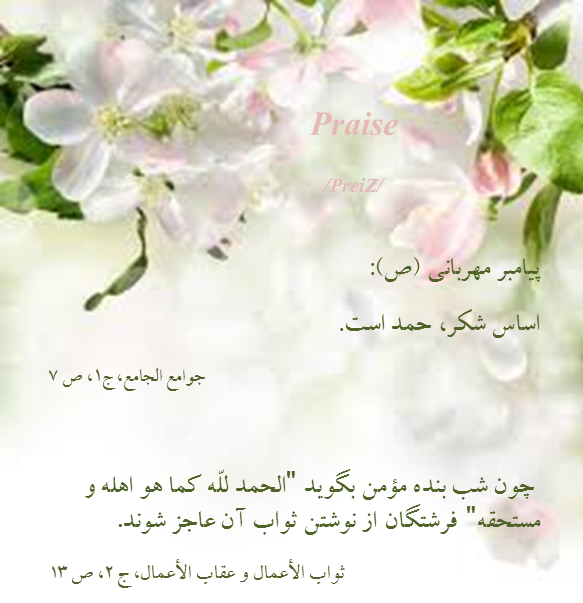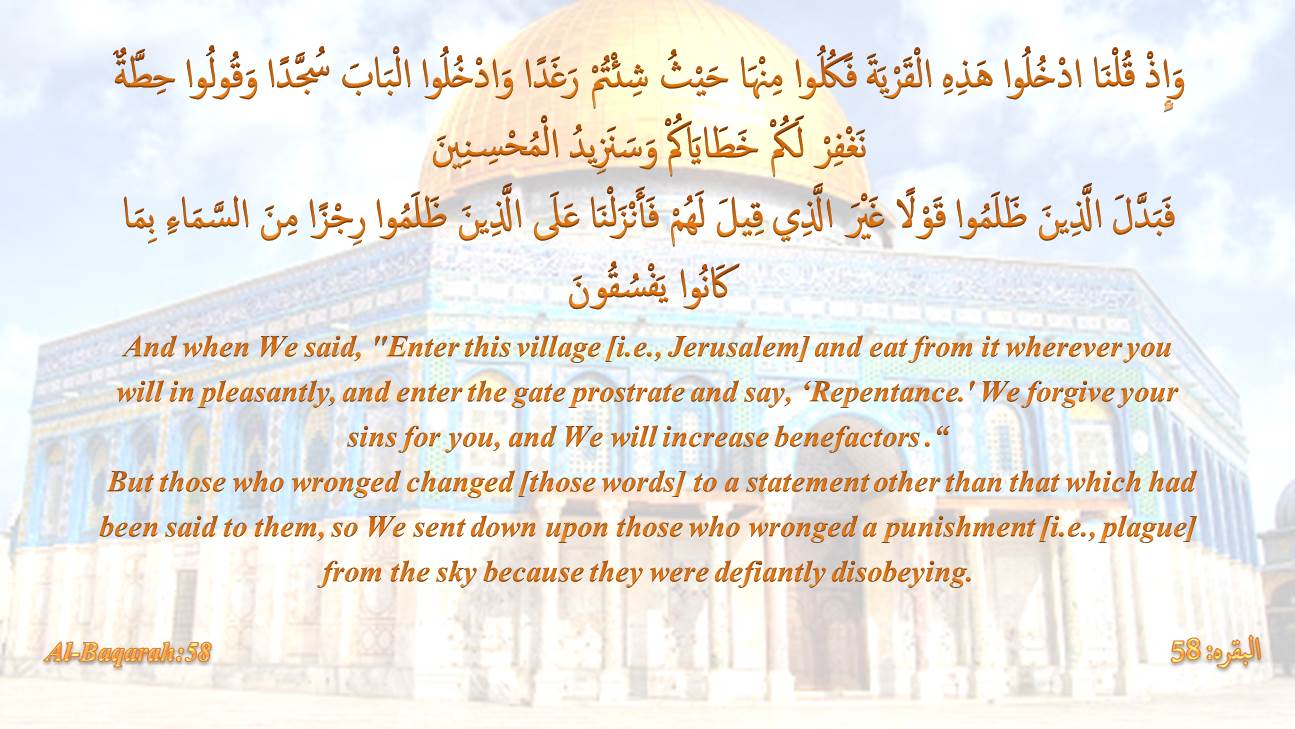“Hamd” is the first section (or surah) of the Holy Quran. This surah consists of seven verses, and Muslims recite it ten times in their daily prayers.
Surah Al-Hamd is fundamentally different from other surahs in terms of tone and melody since it is from the language of the servants. In other words, in this surah, God has taught his servants how to pray and speak to God.
It is notable that Islam, unlike many false or distorted religions that mediate between God and creation, commands people to communicate with their God without any intermediaries.
This surah is a crystallization of this close and direct relationship between God and man. Here we only see him, speak to him, and listen to his message. There is no prophet, messenger or angel as a mediator, and this direct connection of people with the Creator is the beginning of the Holy Quran.
***********************************
سوره "حمد" اساسا با سوره هاى دیگر قرآن از نظر لحن و آهنگ تفاوت روشنى دارد چراکه سوره هاى دیگر همگی سخن خداوند است، اما این سوره از زبان بندگان است. به تعبیر دیگر در این سوره خداوند طرز مناجات و سخن گفتن با خود را به بندگانش آموخته است.
این نکته بسیار جالب است که اسلام بر خلاف بسیارى از مذاهب ساختگى یا تحریف شده که میان خدا و خلق واسطه ها قائل مى شوند، به مردم دستور مى دهد که بدون هیچ واسطه با خدایشان ارتباط برقرار کنند!
این سوره تبلورى از همین ارتباط نزدیک و بى واسطه خدا با انسان و خالق با مخلوق است. در اینجا تنها او را مى بیند، با او سخن مى گوید و پیام او را با گوش جان مى شنود. هیچ پیامبر مرسل و فرشته مقربى در این میان واسطه نیست و عجیب اینکه این پیوند و ارتباط مستقیم خلق با خالق، آغازگر قرآن مجید است.
پ.ن: برگرفته از تفسیر نمونه










